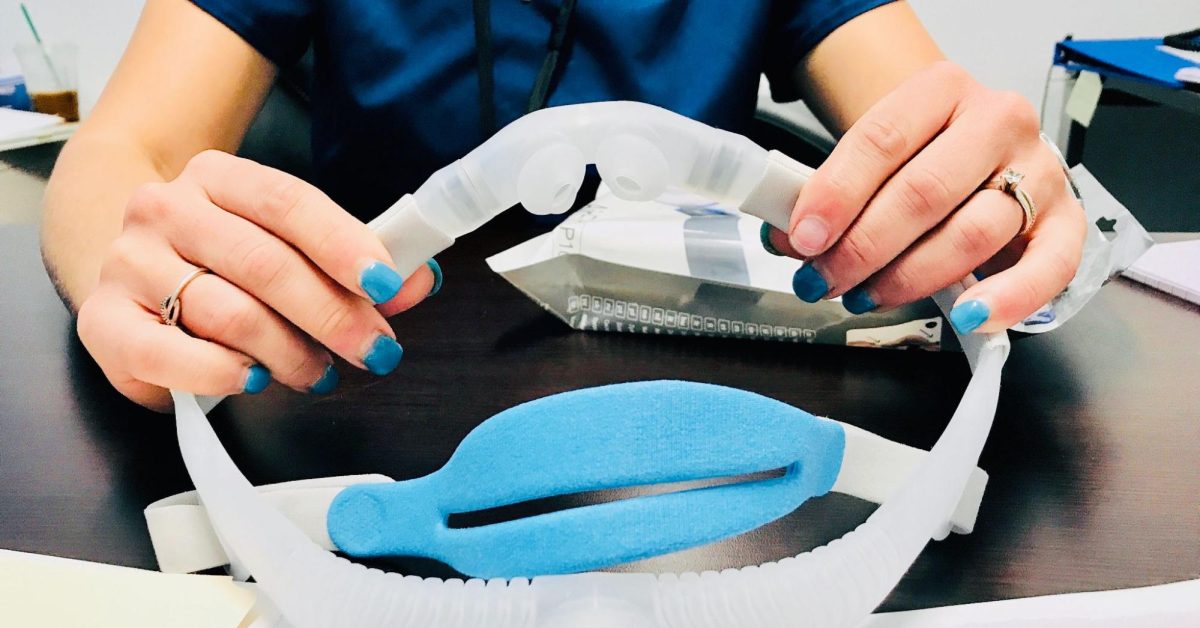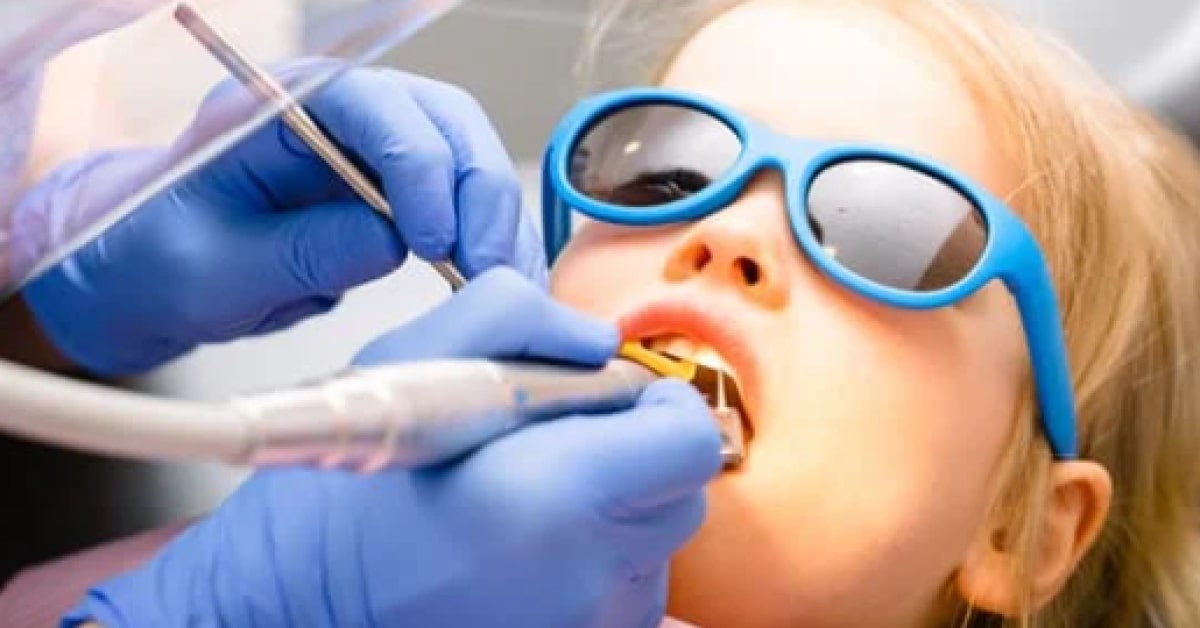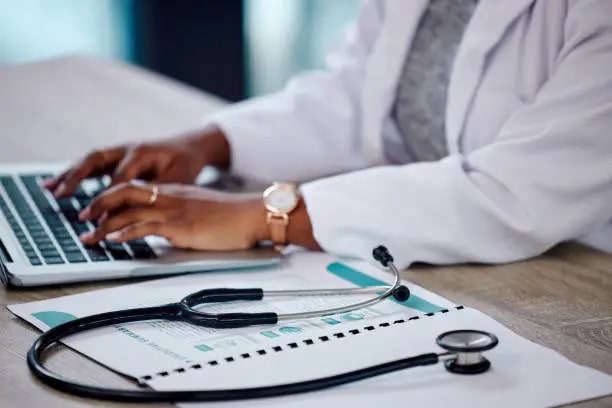Blog
July 06, 2023 • 10 mins readSay Goodbye to CPAP: Effective Sleep Apnea Treatments That Don’t Involve Masks
Say goodbye to CPAP and get the restful sleep you deserve with effective sleep apnea treatments that don't involve masks. Learn more about the latest treatments for sleep apnea.
Author
Danielle Duncan

In this Article
Sleep apnea (or OSA) is a condition that affects thousands of people throughout the United States annually. It is a sleep disorder that causes a person’s breathing to stop and start repeatedly while they sleep. The most common treatment for sleep apnea is the use of a Continuous Positive Airway Pressure (CPAP) machine, which involves wearing a mask that delivers a constant flow of air to keep the airway open. However, for many people sleep apnea and cpap machines just don’t mix. The use of a CPAP machine can be uncomfortable and disruptive to their sleep. Fortunately, there are effective sleep apnea treatments that do not involve masks.
Per the American Academy of Sleep Dentistry, dentists who are trained in dental sleep medicine can help patients through the use of oral appliance therapy. This is a great alternative to Cpap machines that may not work for every patient and can help to provide a positive change in their patients’ lives.
What is a Cpap Machine?
A CPAP machine is one of the most common and well known devices that is used to treat sleep apnea. It is a small, portable device that delivers a continuous stream of air pressure to the patient’s airway in order to keep it open while they sleep. This helps to prevent the patient from snoring or experiencing periods of interrupted breathing during the night. CPAP machines are commonly prescribed for people who suffer from sleep apnea, a condition that is characterized by frequent pauses in breathing during sleep. Untreated sleep apnea poses a huge risk to patients and can lead to a range of health problems, including high blood pressure, heart disease, and stroke.
Unfortunately, some patients may find cpap nasal pillows to be uncomfortable if the fit isn’t quite right. In these situations, the patient is less likely to comply with the treatment that their dentist or sleep provider has prescribed.
What are Some Alternatives to Cpap Machines?
Weight Loss
One of the most effective treatments for sleep apnea is weight loss. Sleep apnea is often associated with being overweight or obese. Losing weight can help to reduce the amount of tissue in the throat that may be contributing to the obstruction of the airway. Thorough studies have shown that even a small amount of lost weight can lead to significant improvements in sleep apnea symptoms.
Dental sleep medicine experts can help their patients with weight loss by promoting a healthy, well-balanced diet and exercise.
Positional Therapy
Positional therapy involves changing the position in which you sleep to reduce the likelihood of your airway becoming obstructed. For example, sleeping on your side can help to keep your airway open and reduce the number of times you stop breathing during the night.
There are a variety of positional therapy devices available, including pillows and wedges, that can help you maintain a side-sleeping position throughout the night.
Oral Appliances
Oral appliances are devices that are worn in the mouth to help keep the airway open while you sleep. These devices work by repositioning the jaw and tongue to prevent the airway from becoming obstructed. Oral appliances are custom-made by a dentist or orthodontist who are trained in dental sleep medicine and are designed to fit comfortably in your mouth while you sleep.
The major benefit of oral appliances is that they are custom-made for each patient, making them more comfortable and more easily adjusted to fit the patient’s specific sleep apnea treatment needs.
Surgery
In rare cases, a more extreme approach may be called for, surgery, the last line of defense may be necessary to treat sleep apnea. Surgical options may include removing excess tissue from the throat, repositioning the jaw, or implanting a device to stimulate the muscles that control breathing. While surgery is not typically the first choice for treating sleep apnea, it can be an effective option for some people who have not responded to other treatments.
How Can Dentists Screen for Sleep Apnea?
There are several ways that dentists can screen for sleep apnea. One of the most common ways is to ask patients about their sleep quality and any signs or symptoms of sleep apnea they may be experiencing. Dentists can also conduct a thorough oral examination to look for signs of bruxism and other oral health-related symptoms of sleep apnea.
In addition, dentists can use screening tools such as the Epworth Sleepiness Scale (ESS) and the STOP-BANG questionnaire to assess a patient’s risk for sleep apnea. The ESS is a simple questionnaire that asks patients to rate their likelihood of falling asleep in various situations, while the STOP-BANG questionnaire assesses a patient’s risk based on factors such as snoring, tiredness, and high blood pressure.
Lastly, dental practices that have implemented dental sleep medicine into their practices also have access to sleep testing devices, such as the Zmachine, to perform at-home sleep studies to confirm the diagnosis of OSA in their patients that works alongside the Imagn Sleep Software to keep track of the nuances of sleep apnea care in dentistry.
Remember, as a dentist, you play a vital role in screening for sleep apnea and helping your patients get the treatment they need. By asking about your patients’ sleep quality and any signs or symptoms of sleep apnea, conducting a thorough oral examination, and using screening tools, you can help identify patients who may be at risk for this serious sleep disorder.



